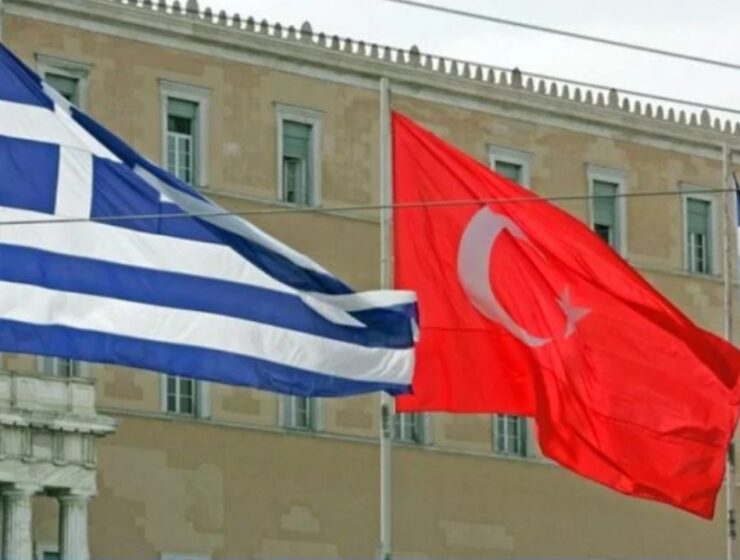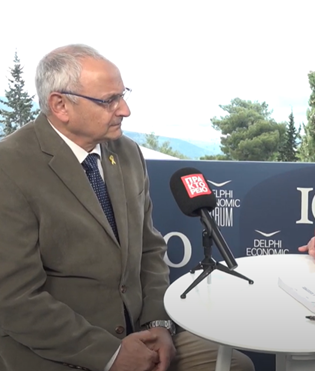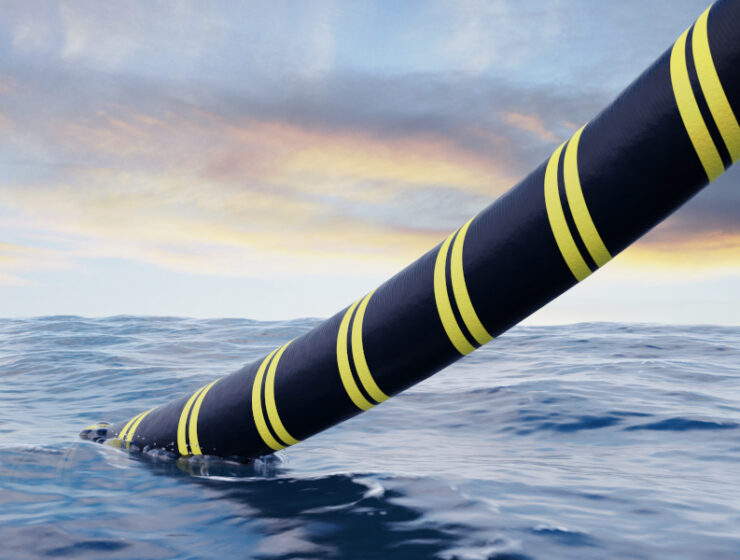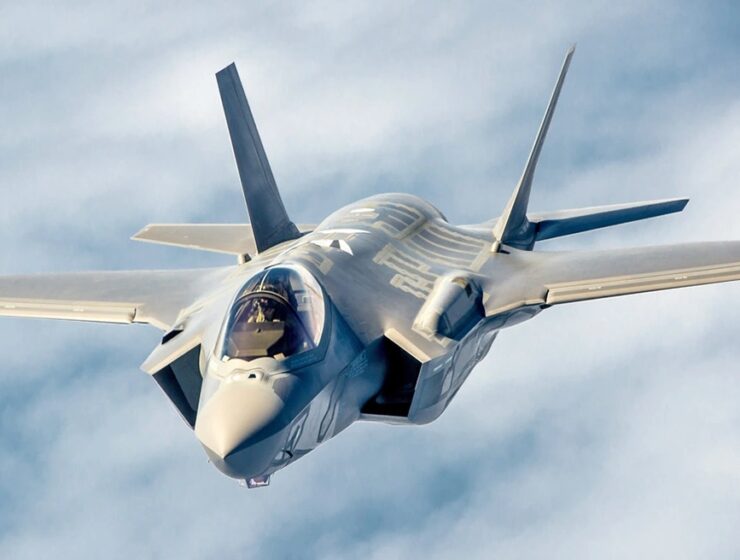Türkiye’s Defense Ministry mocked Greece’s claim of a “five-minute” reaction to alleged threats, dismissing it as absurd.
Tag: Eastern Mediterranean
Turkey has escalated its criticism of Greece’s newly announced maritime spatial planning, calling it a violation of international law. Sources from Turkey’s Defense Ministry told TRT that Greece’s unilateral actions in the Eastern Mediterranean and Aegean lack legal basis and infringe on Turkey’s rights, vowing to protect the “Blue Homeland” with determination.
The Hellenic Republic eagerly awaits the arrival of Kimberly Guilfoyle, nominated by U.S. President Donald J. Trump as the next U.S. Ambassador to Greece. With Greek-American relations at a historic high, Prime Minister Kyriakos Mitsotakis and other leaders express optimism for deepened ties, viewing Guilfoyle’s appointment as a testament to Greece’s strategic importance.
A new chapter in Greece-Türkiye relations unfolded as both nations issued statements regarding their respective Maritime Spatial Planning (MSP) initiatives, highlighting competing claims in the Aegean Sea and Eastern Mediterranean.
Greece’s new Maritime Spatial Planning for tourism, energy, and fishing has angered Turkey, which claims it violates its Aegean and Mediterranean rights. The NATO allies’ dispute, fueled by Turkey’s non-signatory status to UNCLOS and non-recognition of Cyprus, escalates tensions over Crete and maritime boundaries.
Greece’s National Security Council, chaired by Prime Minister Kyriakos Mitsotakis, is meeting today to address the future of the Great Sea Interconnector, a delayed electricity project linking Greece, Cyprus, and Israel. Facing growing opposition from Turkey, which calls the initiative “provocative,” the project’s future hangs in the balance.
The absence of a Greek NAVTEX for the Greece-Israel-Cyprus electricity cable has fueled Turkish media claims of Ankara’s influence. Outlets like Turkiye and Türkgün celebrate the delay as a Greek “retreat,” citing Turkey’s “silent yet effective interventions.”
French Armed Forces Minister Sébastien Lecornu met with Greek Prime Minister Kyriakos Mitsotakis in Athens to reaffirm the deepening strategic defence ties between Greece and France. The visit focused on strengthening bilateral cooperation, enhancing European defence capabilities, and supporting the EU’s push for strategic autonomy through initiatives like the ReArm plan.
Greek Prime Minister Kyriakos Mitsotakis and Israeli Prime Minister Benjamin Netanyahu held a phone call on April 11, 2025, to discuss regional developments and strengthen bilateral ties. Netanyahu shared details of his recent Washington visit, while both leaders explored deeper cooperation between Greece and Israel, highlighting their strategic partnership in the Eastern Mediterranean.
In a speech at the Antalya Diplomacy Forum on April 11, 2025, Turkish President Recep Tayyip Erdogan reaffirmed Turkey’s commitment to fostering positive relations with Greece and ensuring stability in the Eastern Mediterranean and Aegean. Highlighting Turkey’s pivotal role in European security, he called for accelerated EU membership and greater recognition of Turkish Cypriot rights, while urging the EU to overcome internal hesitations and embrace Turkey as a full partner.
At the 10th Delphi Economic Forum, Prime Minister Kyriakos Mitsotakis underscored Greece’s strong standing in the EU and NATO, emphasizing its strategic partnership with the US. Advocating free trade amid potential US tariffs, he welcomed a 90-day tariff freeze by President Trump, urging constructive dialogue to avoid a costly trade war
At the Delphi Economic Forum, Israeli Ambassador to Greece Noam Katz emphasized the deepening strategic partnership between Greece and Israel, grounded in shared values and regional interests. Addressing regional instability, he highlighted cooperation in energy, defense, and diplomacy, while reaffirming Israel’s firm stance on Hamas and security threats in Gaza and Syria.
Turkey has strongly condemned the Greece-Cyprus-Israel undersea power cable project, asserting that such actions violate international maritime law and the UN Convention on the Law of the Sea. Ankara warns that it will not allow any faits accomplis, highlighting the unresolved boundaries in the Aegean and Eastern Mediterranean.
Excerpt:
Israeli Prime Minister Benjamin Netanyahu is lobbying U.S. Secretary of State Marco Rubio and President Donald Trump to block the sale of F-35 fighter jets to Turkey, citing Ankara’s expanding influence in Syria. During his White House visit on April 7, 2025, Netanyahu pressed Trump on the issue, following multiple discussions with Rubio in March and April. Israel fears Turkey’s control of Syrian bases, like T4, could threaten its security, especially as Ankara negotiates a defense pact with Damascus and deploys air defense systems.
Ankara is reacting strongly to the activities of Greece, Cyprus, and Israel concerning the undersea…
Greece is facing a climate crisis that demands urgent action, warns Kostas Kartalis, Professor at the University of Athens. ‘We’ve built our country for a climate that no longer exists,’ he told the Athens-Macedonian News Agency. With heatwaves, droughts, and wildfires intensifying, Kartalis calls for a major overhaul of productive sectors and infrastructure to withstand these changes, ahead of his participation in the 10th Delphi Economic Forum, set for April 9-12, 2025.
During a U.S. visit on April 4, 2025, former Greek PM Alexis Tsipras criticized Turkey’s opposition to a Greece-Cyprus undersea power cable and its potential F-35 acquisition, warning of regional instability. Speaking at a Center for American Progress event, he urged stronger Greek-American ties and proposed resolving maritime disputes with Turkey at the ICJ.
The potential revival of the EastMed pipeline under Donald Trump’s leadership signals a renewed push for energy cooperation between Greece, Cyprus, and Israel. Designed to transport Eastern Mediterranean natural gas to Europe, the project strengthens regional stability, enhances Europe’s energy independence, and reinforces the geopolitical significance of the participating nations. With renewed U.S. support, EastMed could become a key pillar of Western energy security.
On March 30, 2025, Israeli Prime Minister Benjamin Netanyahu welcomed Greek Prime Minister Kyriakos Mitsotakis in Jerusalem for a high-level meeting. The leaders discussed their nations’ shared historical roots, common values, and strategic interests, with a focus on defense systems like BARAK MX and SPIKE NLOS. The talks signal a deepening partnership amid regional challenges and opportunities.
Greek Prime Minister Kyriakos Mitsotakis participated in a high-level quadrilateral summit in Paris, addressing regional security, migration, and energy cooperation alongside leaders from France, Cyprus, and Lebanon.



















